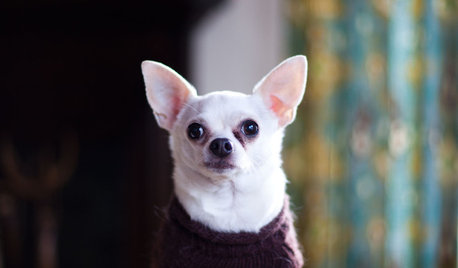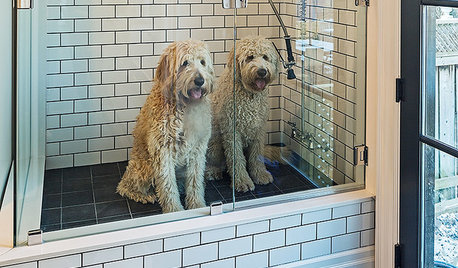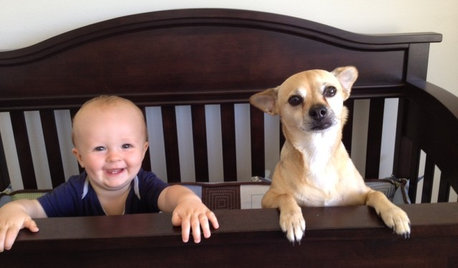Scale - not on pups
bromadams
15 years ago
Related Stories

HOUZZ TOURSMy Houzz: Cottage Comforts in the Louisiana Woods
Part secluded retreat, part party central, this cabin hidden among the trees is all good design
Full Story
LIVING ROOMSKey Measurements for Your Living Room
Learn the basic dimensions that will allow good circulation, flow and balance as you fit in all the furnishings you want
Full Story
SMALL HOMESHouzz Tour: Comfy and Cozy in 630 Square Feet
This Maine cottage's clever layout, thoughtful storage and hosting abilities show that downsizing doesn't have to mean doing without
Full Story
ENTRYWAYSSingle Design Moves That Can Transform an Entry
Take your foyer from merely fine to fabulous with one brilliant touch
Full Story
PETSWhat Chihuahuas Can Teach Us About Interior Design
Who knew these tiny dogs could be such a huge fount of design tips? Houzzers did
Full Story
GARDENING GUIDESHow to Keep Your Citrus Trees Well Fed and Healthy
Ripe for some citrus fertilizer know-how? This mini guide will help your lemon, orange and grapefruit trees flourish
Full Story
PETSHouzz Call: Send in the Dogs
Have the greatest dog in the world? Share your best design photo featuring the dog you live or work with
Full Story
THE HARDWORKING HOME8 Laundry Room Ideas to Watch For This Year
The Hardworking Home: A look at the most popular laundry photos in 2014 hints that dog beds, drying racks and stackable units will be key
Full Story
FEEL-GOOD HOME6 Design Ideas for Happy Pets
Keep your dog or cat feeling safe and in high spirits, and you'll all feel more at peace. Here's how
Full Story
HOUZZ TOURSMy Houzz: Color This Utah Home Terrific
Candy-colored walls lit up by sunlight and a streamlined, open layout make a family’s new house one of a kind
Full StoryMore Discussions






hotdiggetydam
splinter1804
Related Professionals
Aurora Landscape Contractors · Barrington Landscape Contractors · Bell Gardens Landscape Contractors · Bellefontaine Neighbors Landscape Contractors · Cudahy Landscape Contractors · Longview Landscape Contractors · Waterford Landscape Contractors · Brooklyn Park Fence Contractors · Oceanside Fence Contractors · Oro Valley Fence Contractors · Palm Harbor Fence Contractors · Silver Spring Fence Contractors · Cayce Fence Contractors · Perth Amboy Siding & Exteriors · Rochester Siding & ExteriorsbromadamsOriginal Author
paul_t23